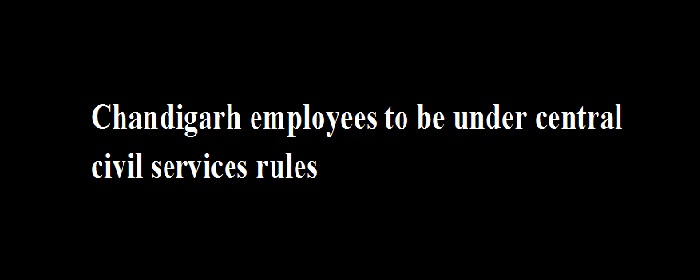CURRENT AFFAIRS
Get the most updated and recent current affair content on Padhaikaro.com
Chandigarh employees to be under central civil services rules
- IAS NEXT, Lucknow
- 30, Mar 2022

Reference News:-
The Central Government has announced that the central civil services will now apply to the employees of the Chandigarh administration.
- The Union Territory of Chandigarh is the common capital of Punjab and Haryana.
Implications:
- Enhancement of retirement age from current 58 years to 60 years.
- Women employees will now have two years of child care leave from the existing one year.
- It will have other benefits like an increase in child education allowance.
- Those with the education department, their retirement age will enhance to 65
Opposition to this decision:
The decision has invited sharp criticism from Punjab leaders who, cutting across party lines, termed it “an encroachment on Punjab’s rights”.
- This is in violation of the spirit of Punjab Reorg Act and must be reconsidered.
Chandigarh status:
So far, the UT employees were covered under Punjab Civil services rules.
- In 1966, when Punjab was split into Punjab and Haryana, with some territory to Himachal Pradesh, both states claimed Chandigarh as their capital. Pending a resolution, the Centre declared Chandigarh a Union Territory.
- As per the Punjab Reorganisation Act, 1966, Chandigarh was to be governed by the Centre but laws in force in undivided Punjab were to be applicable to the UT.
- In 1984, the Punjab governor was made administrator of the city at a time when the region was battling terrorism.
Administration of UTs:
Articles 239 to 241 in Part VIII of the Constitution deal with the union territories and there is no uniformity in their administrative system.
- Every union territory is administered by the President through an administrator appointed by him.
Power of parliament to make laws:
- The Parliament can make laws on any subject of the three lists (including the State List) for the union territories.
- The President can make regulations for the peace, progress and good government of the Andaman and Nicobar Islands, Lakshadweep, Dadra and Nagar Haveli, and Daman and Diu.
- A regulation made by the President has the same force and effect as an act of Parliament.